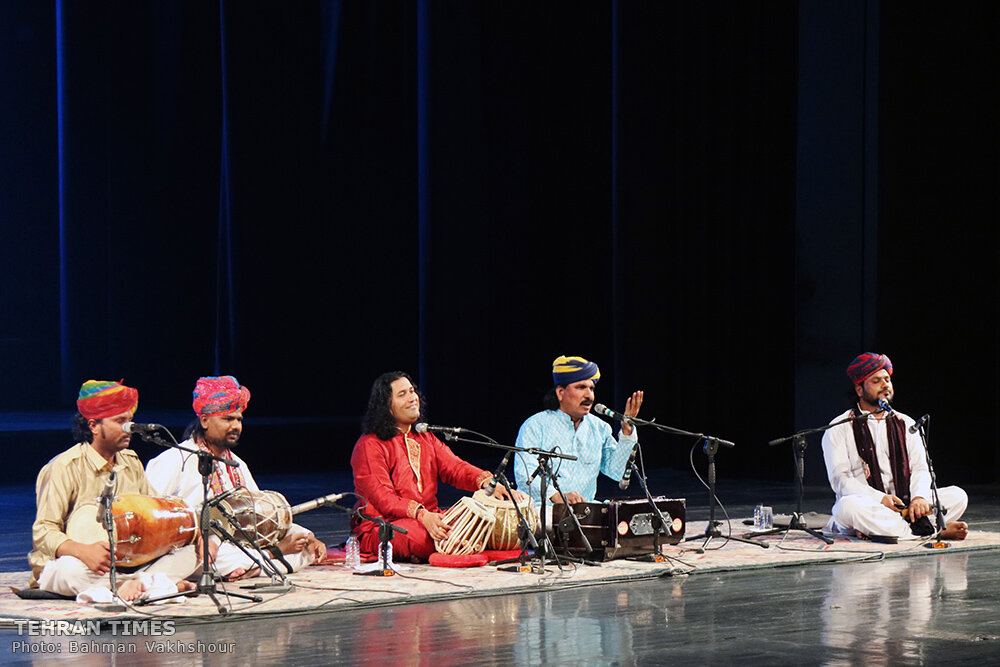Indian, Tajik, Uzbek musicians perform on 2nd day of 39th Fajr International Music Festival

TEHRAN-Vahdat and Roudaki halls in Tehran hosted performances by Indian, Tajik, and Uzbek musicians as part of the international section of the 39th Fajr Music Festival on Tuesday, February 13.
On the second day of the festival, internationally acclaimed musician Rahis Bharti from India, founder and director of DHOAD Gypsies of Rajasthan, performed with his band at Vahdat Hall.
In his first concert in Iran, he performed a repertoire of pieces from Rajasthan, a state in northern India, “where Muslims and followers of other religions live peacefully beside each other”.
“Music has a significant place in Rajasthan and connects religions,” Bharti said at the concert. “As an artist, I wish for peace on the planet for all the people of the world. Today, we are members of a family and I try to give you happiness through the music”.
Bharti is the creator and director of various programs performed by the legendary Bollywood Masala Orchestra - Spirit of India, Jaipur Maharaja Brass Band, and Chalaang - drummers of India. He has appeared in over 2,500 Performances in 110 countries for the last 18 years.
Tehran’s Roudaki Hall hosted two international performances on Tuesday, one from Tajikistan and the other from Uzbekistan.
Tajik musician and singer Abrar Zufarov performed on the second day of the festival at Roudaki Hall. Besides singing, he played Tajik tanbur and setar during his performance and was accompanied by a dayera player.
Another concert was held at the same venue and Uzbek musician and singer Serdar Soliev performed the mugham music of Uzbekistan.
Iranian traditional and pop singer Hojat Ashrafzadeh also performed at Vahdat Hall as part of the national section of the festival on Tuesday.
In addition to Vahdat and Roudaki halls, five other venues in Tehran play host to various performances during the festival including pop, folk, traditional, and international music.
The festival is held in Tehran and 14 other provinces simultaneously. The seven venues in Tehran host more than 70 performances and over 330 stage performances will be held in 14 provinces including East Azerbaijan, Bushehr, Semnan, Fars, Golestan, Markazi, Mazandaran, North Khorasan, Kohgiluyeh and Boyer Ahmad, Khuzestan, Kermanshah, Lorestan, Kerman, and Hormozgan.
Organized by the Music Office of the Deputy for Artistic Affairs of Iran's Ministry of Culture and Islamic Guidance, the festival encompasses various sections such as the competitive (Barbad Award), non-competitive, and research sessions.
The international event will conclude on February 17.
SS/
Leave a Comment